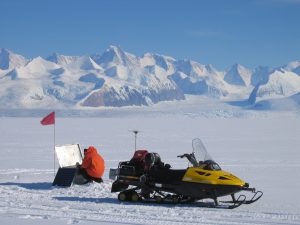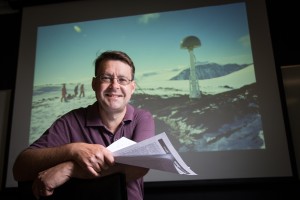The common perception of the Antarctica continent is that is frozen and unmovable. Over the last two decades, remote fieldwork and technological advances have yielded geodetic datasets that show that much of Antarctica may be frozen but it is far from unmovable. Rather, the ice sheet and the bedrock it sits upon are highly dynamic. This presentation will highlight how measuring Antarctica’s response to a series of great natural experiments has given new insights into fundamental processes that are active within the ice sheet and solid Earth.
Prof. Matt King started focusing on Antarctica during his PhD at the University of Tasmania, where he quantified multi-decadal changes in the motion of a large floating Antarctic ice shelf using surveying data. He then moved to the UK where he researched the application of GPS positioning to understanding subsidence of offshore platforms, glacial dynamics, Earth deformation and Antarctica’s contribution to recent sea-level change. He has travelled to both Antarctica and Greenland. He has been back at UTas since 2012, and in 2015 the Royal Society (London) awarded him the Kavli Medal and Lecture.
Venue: Meeting Room, QVMAG at Inveresk.
Admission: $6 General Public, $4 Friends of the Museum and Students
Free for members of The Royal Society of Tasmania
To assist us with the organization of this event
RSVP by Thursday 17th March 2016
Email: bookings@qvmag.tas.gov.au or telephone 6323 3798


